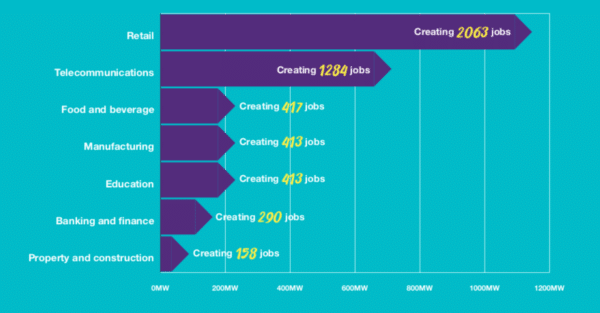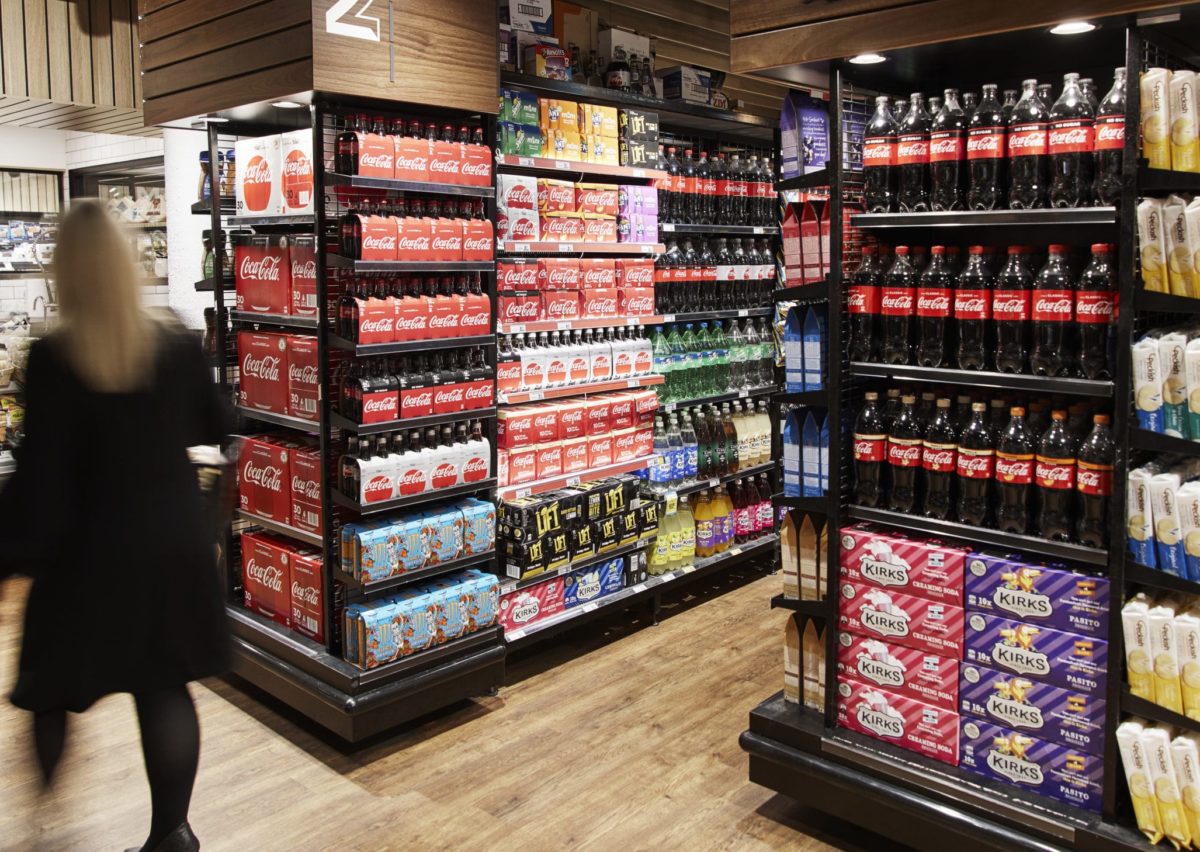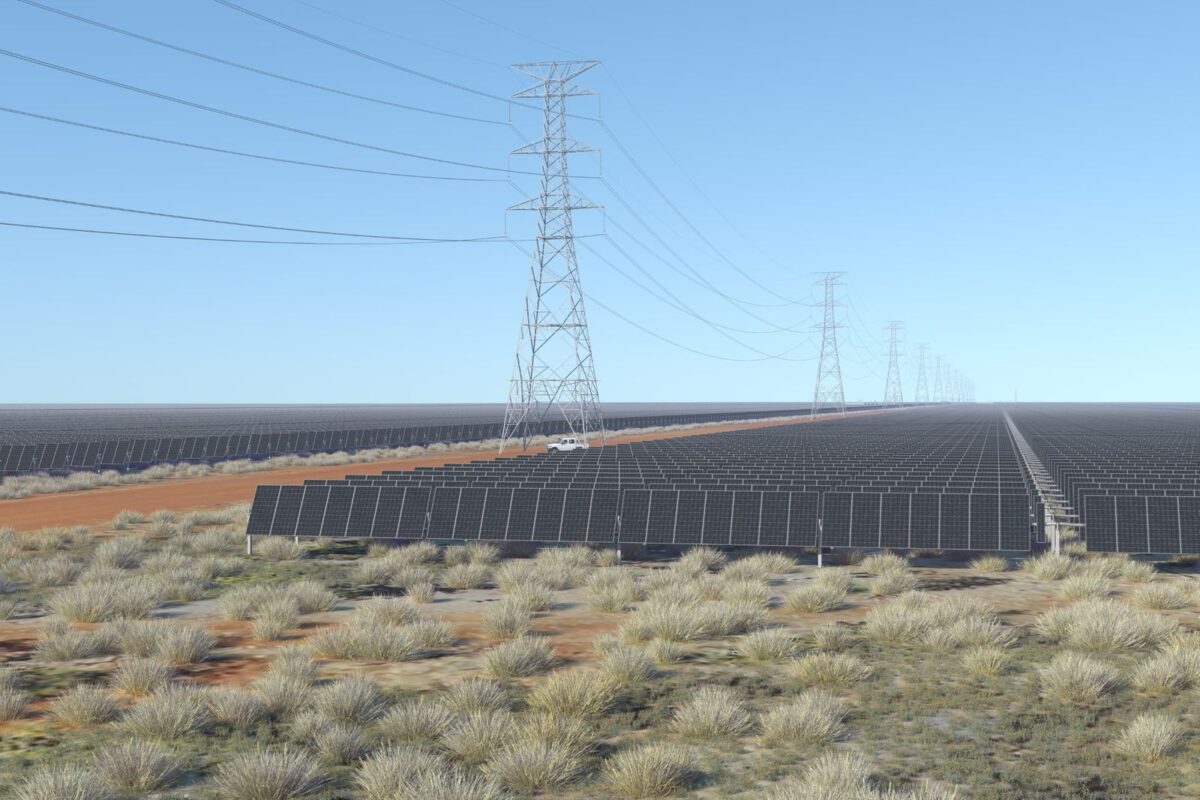Coca-Cola Amatil, one of the world’s largest drinks distributors – carrying brands from Coca-Cola to Mount Franklin, Sprite to Canadian Club – has become the latest company to make a clean energy commitment.
The company has pledged to have its operations 100% powered by renewable energy in Australia and New Zealand by 2025, with plans to achieve Scope 1 & 2 net-zero carbon emissions by 2040, meaning it will have net-zero emissions from company-owned and controlled resources as well as net-zero indirect emissions from the generation of purchased energy.
Coca-Cola Amatil’s Group Head of Sustainability, Mary Ann van Bodegraven, says the company plans to do so with a range of measures.
“To help us achieve our 100% renewable electricity goal in Australia we will need to look at all options, including expanding our use of on-site solar, further wind or solar PPAs, as well as smaller GreenPower contracts – and of course the best way to reduce our emissions and costs is to focus on energy efficiency – so we will continue implementing more efficient equipment, lighting, and HVAC in our facilities. In New Zealand we are already purchasing electricity generated from renewable sources,” she told pv magazine Australia.

Image: Verdia
With the announcement, Coca-Cola Amatil joins a growing list of Australian corporations committing to switch to 100% renewables, which already includes Woolworths, Telstra, Bunnings, Officeworks, Aldi and more.
Greenpeace, which have been pressuring Coca-Cola Amatil and other corporates to switch to renewable energy through its Australian REenergise campaign, as well as its global RE100 push, applauded the move.
“Greenpeace is the last organisation you’d expect to find cheering on an announcement from Coca-Cola Amatil. But in this instance we think they’re doing the right thing,” REenergise Campaign Director Lindsay Soutar said.
“Coca-Cola Amatil is one of Australia’s major energy users. Coke committing to 100% renewable electricity will reduce Australia’s greenhouse gas emissions and put pressure on other major businesses to make the switch.”
Greenpeace’s tactic of pressuring corporates to switch to renewables has proven fruitful. So far, cumulative clean energy commitments from Australia corporations have driven around 2.8 GW of demand for renewable energy projects. The retail industry is leading the corporate race with almost double the clean energy commitments of the next best performing industry, which was telecommunications.

Greenpeace
Despite the surge in commitments from both private companies and State and Local Governments in the last 12 months, Australia’s Federal Government continues to drag its feet.
“As our Federal leaders dither over an inadequate net-zero by 2050 emissions reduction target, they’re being out-run by Australian businesses who are rapidly transitioning to renewable energy, and setting net zero goals for ten years earlier. When even Coca-Cola’s doing more for the environment than our government is, it shows it’s time for Australia to up its climate ambition,” Soutar said.
Soutar added that while the Greenpeace Australia Pacific welcomes the company’s renewable energy announcement, it’s not letting Coca-Cola off the hook on other environmental issues.
“While this is a welcome step, Coca-Cola Amatil still has a lot of work to do on its environmental impact, such as banning single use plastic drink bottles, one of the biggest contributors to harmful plastic pollution ” she said.
This content is protected by copyright and may not be reused. If you want to cooperate with us and would like to reuse some of our content, please contact: editors@pv-magazine.com.









By submitting this form you agree to pv magazine using your data for the purposes of publishing your comment.
Your personal data will only be disclosed or otherwise transmitted to third parties for the purposes of spam filtering or if this is necessary for technical maintenance of the website. Any other transfer to third parties will not take place unless this is justified on the basis of applicable data protection regulations or if pv magazine is legally obliged to do so.
You may revoke this consent at any time with effect for the future, in which case your personal data will be deleted immediately. Otherwise, your data will be deleted if pv magazine has processed your request or the purpose of data storage is fulfilled.
Further information on data privacy can be found in our Data Protection Policy.